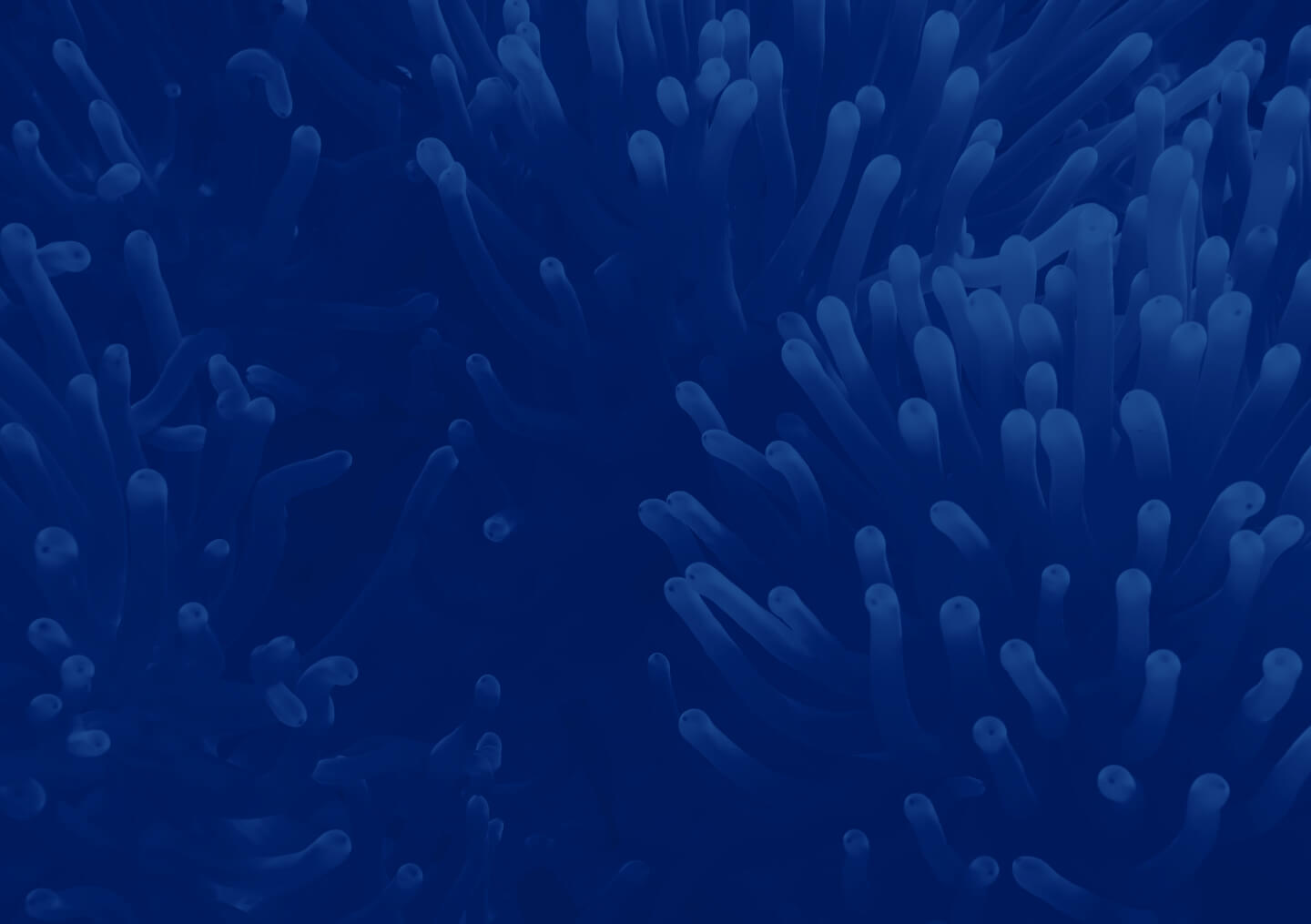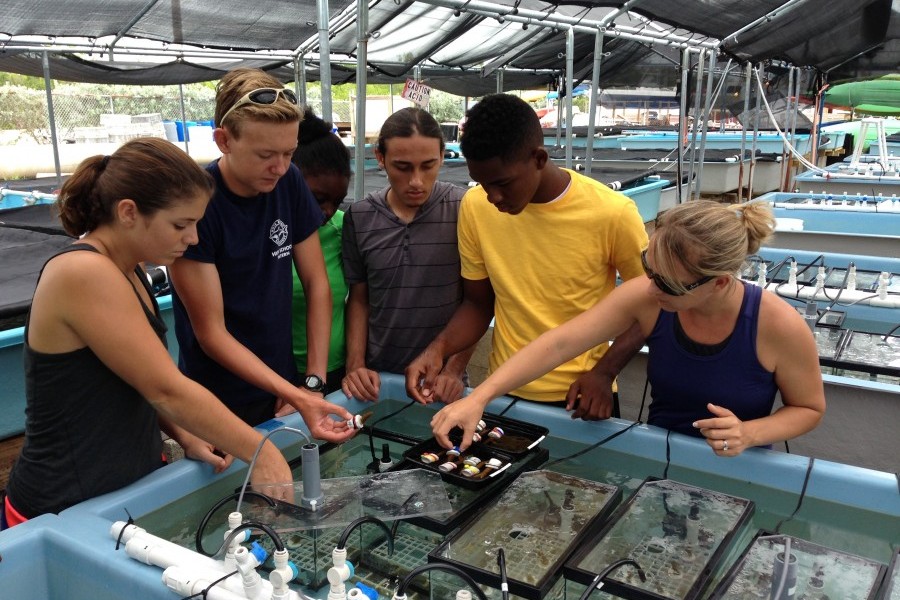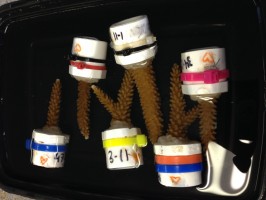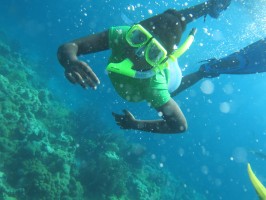High schoolers from the U.S. Virgin Islands helped conduct coral reef research this month in the Florida Keys, mentored by a Mote Marine Laboratory scientist who received a National Science Foundation (NSF) grant to study the variability in resilience of corals affected by environmental change.
From Aug. 12-18, six students from St. Croix and one from the Florida Keys collected coral-related data and explored Keys ecosystems with Mote Staff Scientist Dr. Erinn Muller, who received a five-year NSF grant in 2015 to study threatened staghorn coral. This grant is from NSF’s Faculty Early Career Development (CAREER) Program, which offers prestigious awards to exemplary teacher-scholars through the integration of excellent education and outstanding research.
Muller is studying staghorn coral’s potential to be affected by, and rebound from, major environmental stressors: disease, high water temperatures and ocean acidification. Her preliminary results show that some genetic strains of staghorn coral resist stress better than others. Once the study concludes, she plans to share the final results with the scientific community, resource managers and others through peer-reviewed publications.
With this project ongoing at Mote’s Summerland Key facility, the high-school visitors had plenty to do.
“The students learned techniques to measure coral health and physiology, to take water quality measurements of tanks holding the coral, to measure growth rates by looking at the buoyant weight of coral, and to quantify photophysiology — processes involving the symbiotic algae that the coral need to survive,” Muller said. “They were collecting data for the NSF research project, and they took the responsibility seriously and understood how important this research is. They did an amazing job.”
“My favorite part of the trip was getting to meet full-time scientists who do things that I see myself doing in the future,” said Narius Marc Louis, a 16-year-old student attending the St. Croix Educational Complex.
Louis continued, “I also enjoyed going out on the boat and snorkeling in the different areas. I believe the work being done with the corals is just amazing. The amount of corals being grown and taken care of at the lab just amazes me and makes me excited to know that someday all those corals will be outplanted back onto the reefs, making them as beautiful as they were before. This trip has given me more of an understanding of the work marine biologist do, and someday I look forward to doing that work alongside other scientists.”
Staghorn coral and other coral species around the world face serious challenges from climate change, disease and ocean acidification — a harmful chemistry change due to excess carbon dioxide entering the sea. Staghorn coral populations, which dominated shallow reefs in places like the Florida Keys for the last 2 million years, are now a fraction of what they were in the 1980s. St. Croix, the largest of the U.S. Virgin Islands, hosts staghorn and other corals that are weathering similar challenges.
Mote — an independent, nonprofit institution based in Sarasota, Florida, that conducts marine research around the world — has nursery-raised staghorn, brain, boulder and star coral fragments and planted more than 20,000 of them onto depleted reefs in the Florida Keys. In early 2017 Mote plans to open a new coral reef research and education facility at its Summerland Key campus, which will advance coral restoration and research projects like Muller’s, which could help scientists restore the coral strains most likely to survive.
While working with Muller, the high school group also hiked and snorkeled through Florida Keys ecosystems at Looe Key, Bahia Honda State Park and Fort Zachary Taylor Historic State Park — the site of an ongoing coral restoration project by Mote and partners.
“For many of the students, it was their first opportunity to do research, as well as their first opportunity to compare the ecology of Florida and St. Croix,” Muller said. “This was possible because their travel, food and lodging was supported by the NSF grant. We’re truly grateful for this opportunity.”
These high-schoolers are part of a Research-based After-school Program, which is overseen by Muller and the St. Croix nonprofit EARTHANGLE, led by Ms. Daina King-Sall. Mote hosts a complementary program for lower-Keys students, designed by Muller and Aly Busse, Mote’s Assistant Vice President for Education. This Florida program, coordinated by Sean Russell, and the group from St. Croix allow students to conduct their own research projects throughout the year.
Russel said of the Florida Keys prorgram: “Through this program, we’re providing Florida Keys high school students with the unique opportunity to take part in authentic, hands on, marine research and conservation work at an early age — empowering them to develop research questions and projects with direct ties to the coral reef ecosystems of their local communities, while gaining skills for future careers in science fields.”




